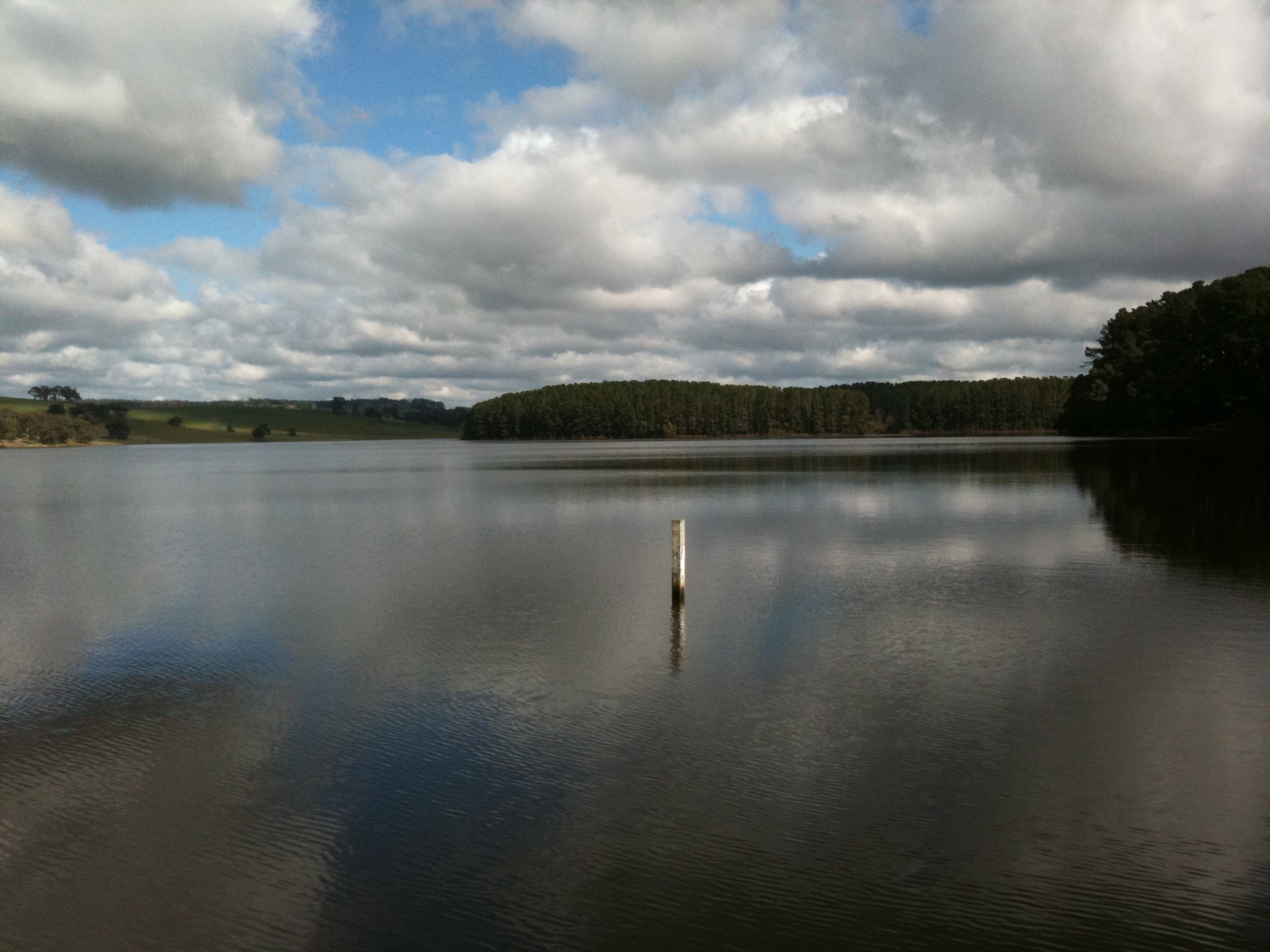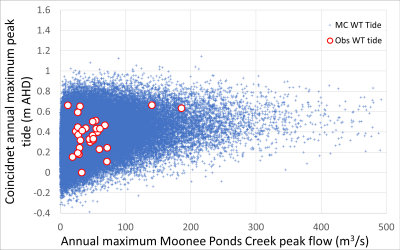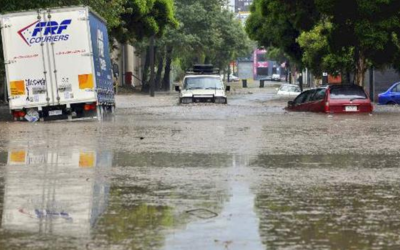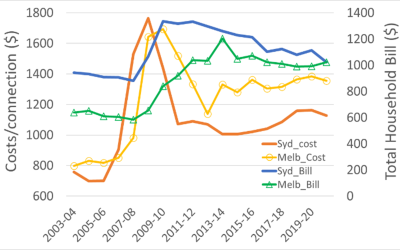Chief Water Scientist in Victoria Government Office of Living Victoria
Key achievements
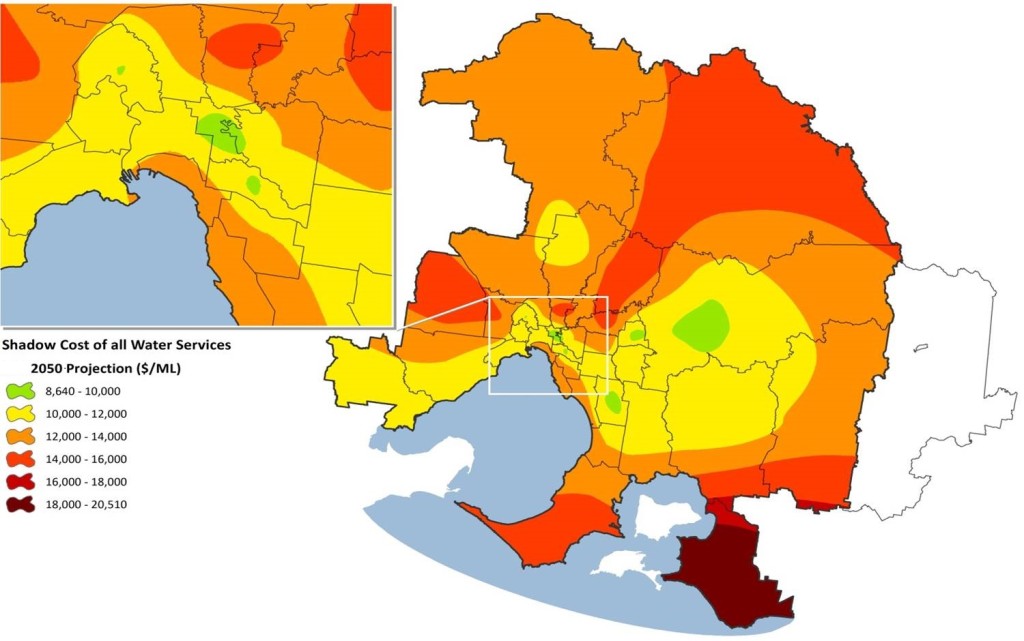
Shadow costs of water, wastewater and stormwater services derived using the Systems Framework – this reveals the opportunities for intervention throughout Greater Melbourne
Dr Peter Coombes was appointed as an independent Chief Water Scientist in the Victorian Government with a key role to use systems analysis to review water strategies and policies. This was a challenging, contested, rewarding and influential role. An amazing body was work was completed and some of this contribution is summarised in this article.
A comprehensive review and analysis of the draft metropolitan Water Supply Demand Strategy was completed using the Systems Framework. This review contributed to the development of the business plan for the Office of Living Victoria (OLV).
Led the development of the preliminary Melbourne Integrated Water Cycle Strategy (MIWCS). This draft strategy was submitted to the Department and Minister for Water prior to Christmas 2012. The draft strategy was subsequently used as the starting point for the development of the Melbourne’s Water Future strategy.
A key contributor to strategy and systems analysis to the successful submission of the Melbourne’s Water Future and Ballarat’s Water Future strategy to the Victorian Cabinet. Provided over 150 advisory memos, reports and cabinet notes.
Preliminary Advisory Role
The process commenced with an independent review of the Metropolitan Water Supply Demand Strategies proposed by Victorian water utilities by Dr Peter Coombes at Urban Water Cycle Solutions. This comprehensive review involved multiple stakeholder interviews and independent analysis of assumptions to provide the recommendations for reform of the Victorian water industry and business planning for the Victorian water bureaucracy.
These recommendations were ultimately utilised by the Office of Living Victoria (OLV). A draft Melbourne Integrated Water Cycle Management Strategy was also provided to the Victorian Water Minister in December 2012 as a starting point for ultimate delivery of Melbourne’s Water Future to Cabinet.
The Secretary of the Department of Sustainability and Environment appointed Dr Coombes to the role of Chief Scientist but departmental legal processes delayed this appointment until June 2013. As an interim, this advisory position was extended to include contribution to the development of Melbourne’s Water Future strategy and the ultimate submission to the Victorian Cabinet. An example of analysis and reporting underpinning this process is:
Overview of Systems Analysis supporting the Ministerial Advisory Council
Report on Systems Analysis supporting the Ministerial Advisory Council
Chief Water Scientist
Dr Peter Coombes was ultimately appointed as an independent Chief Scientist in the Victorian Government’s Office of Living Victoria (OLV) with responsibility to provide science and policy advice to support the Living Victoria water reforms. The key task was to provide robust, independent scientific, engineering and economic analysis to inform the evidence based role of the Department.
A major element of this role was the use of the Systems Framework approaches developed over the last 20 years by Dr Coombes to provide insight into reform programs that deliver the optimum liveability and sustainability outcomes at a reasonable cost. This challenging role required independent analysis and review of proposals and policies originating from government departments, water monopolies and the private sector which was a strong departure from past practice of “insider review”.
Key Outputs
This position involved substantial interaction with senior bureaucrats, cabinet members and multiple stakeholders. The Victorian Government and the Department asked invited Peter Coombes to accept a challenging role and set the conditions. Over 150 advisory memos, reports and cabinet notes were provided during the period 2011 to 2014, including the key reports provided at the following links (for example):
Review and analysis of Casey Cardinia growth corridor
Systems Analysis of Ballarat Region
Systems analysis of the Economics of Water Resources in the Ballarat Region
This role of Chief Water Scientist supported a number of key policy and strategy outcomes, including the Melbourne Water Future and Ballarat Water Future strategies that were ratified by the Victorian Cabinet in 2013 and 2014 as shown at the following links.
The Chief Water Scientist was essentially required to foster an institutional behaviour change process to develop modern government water policies by challenging legacy assumptions and arrangements with evidence. Whilst the process was contested, significant lasting change was established in urban water cycle management which includes systems thinking, modern objectives and integration across society.
Insights and Ongoing Impacts
The contributions to science and policy generated during this period were peer reviewed and published – we have made this work available to assist others. Significant awards were also received for the applied science discoveries from this position, including runner-up in the GN Alexander Medal in 2015 and winning the GN Alexander Medal in 2018. A summary of the valedictory comments made at completion of the challenging role was published at this link: Chief Scientist valedictory comments

